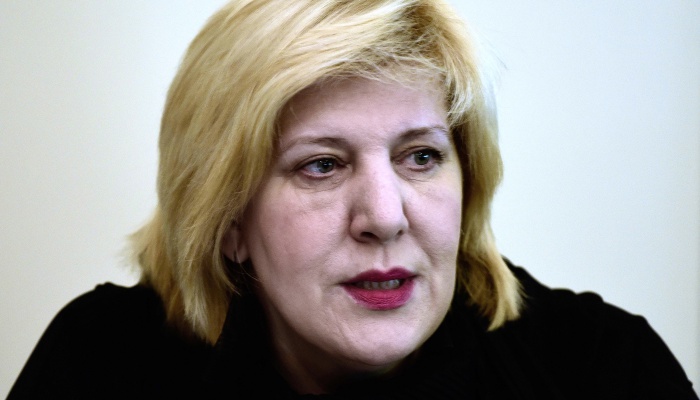Council of Europe Commissioner for Human Rights Dunja Mijatović has called on Turkish authorities to take immediate action to restore confidence in the judiciary, which she said was devastated during a two-year-long state of emergency declared in the aftermath of a failed coup attempt in 2016.
“Turkey must take urgent and necessary measures to re-establish trust in its judiciary and repair the damage inflicted on the rule of law during the state of emergency and its aftermath,” Mijatović said on Monday at the end of a five-day visit to Turkey.
Turkey’s ruling Justice and Development Party (AKP) government declared a state of emergency in the aftermath of the failed coup attempt on July 15, 2016. It was lifted in July 2018.
Mijatović stated that the independence of the Turkish judiciary was seriously eroded during the state of emergency, including through constitutional changes regarding the Board of Judges and Prosecutors (HSK) which she said are in clear contradiction with Council of Europe standards, and the suspension of ordinary safeguards and procedures for the dismissal, recruitment and appointment of judges and prosecutors.
“As a result, the existing tendency of the Turkish judiciary to put the protection of the state above that of human rights was significantly reinforced, and the criminal process appears to often be reduced to a mere formality, especially in terrorism-related cases. In countless other cases, the judiciary is literally bypassed even for measures seriously affecting individuals’ core human rights, such as certain travel restrictions or the right to practice as a lawyer,” the commissioner said.
More than 150,000 people were removed from state jobs through government decrees, which cannot be appealed at a court, during the state of emergency, while 500,000 others have been investigated on claims of terrorism due to their alleged links to the Gülen movement, which is accused by the Turkish government of masterminding the coup attempt. The movement strongly denies any involvement in the failed putsch.
“Turkey has the right and duty to fight against terrorism and criminal organizations, including in response to the attempted coup d’état of 15 July 2016. There is no security without respect for human rights and at the same time people cannot enjoy human rights if they do not feel secure. Disregarding human rights in this fight against terrorism undermines the rule of law and trust in the justice system,” she added.
The commissioner also stated that “laws with an overly broad definition of terrorism and membership of a criminal organization and the judiciary’s tendency to stretch them even further is not a new problem in Turkey, as attested in numerous judgments of the European Court of Human Rights,” adding that “this problem has reached unprecedented levels in recent times.” She said that prosecutors, and increasingly also the courts, consider lawful and peaceful acts and statements protected under the European Convention on Human Rights as proof of criminal activity, with no attempt to balance supposed security concerns against human rights.
During her visit from July 1 to 5, Mijatović was in İstanbul and Ankara, meeting with Turkish officials, including Mevlüt Çavuşoğlu, minister of foreign affairs, and Abdülhamit Gül, minister of justice, as well as civil society representatives and lawyers. The commissioner also expressed her appreciation for the fact that Turkish authorities had facilitated a visit to Silivri Prison, where the she met with businessman Osman Kavala, journalist Ahmet Altan and lawyer Selçuk Kozaağaçlı.
The commissioner’s report on her visit to Turkey will be forthcoming.
